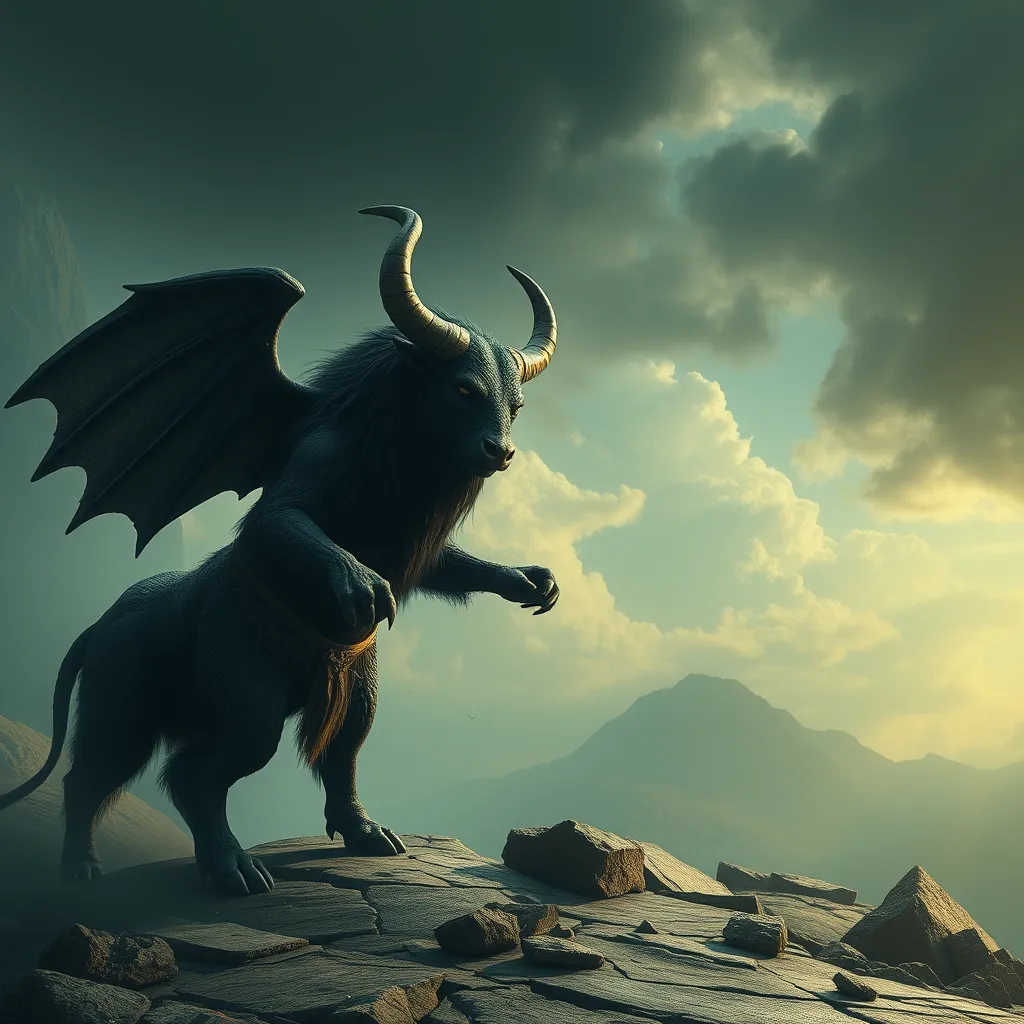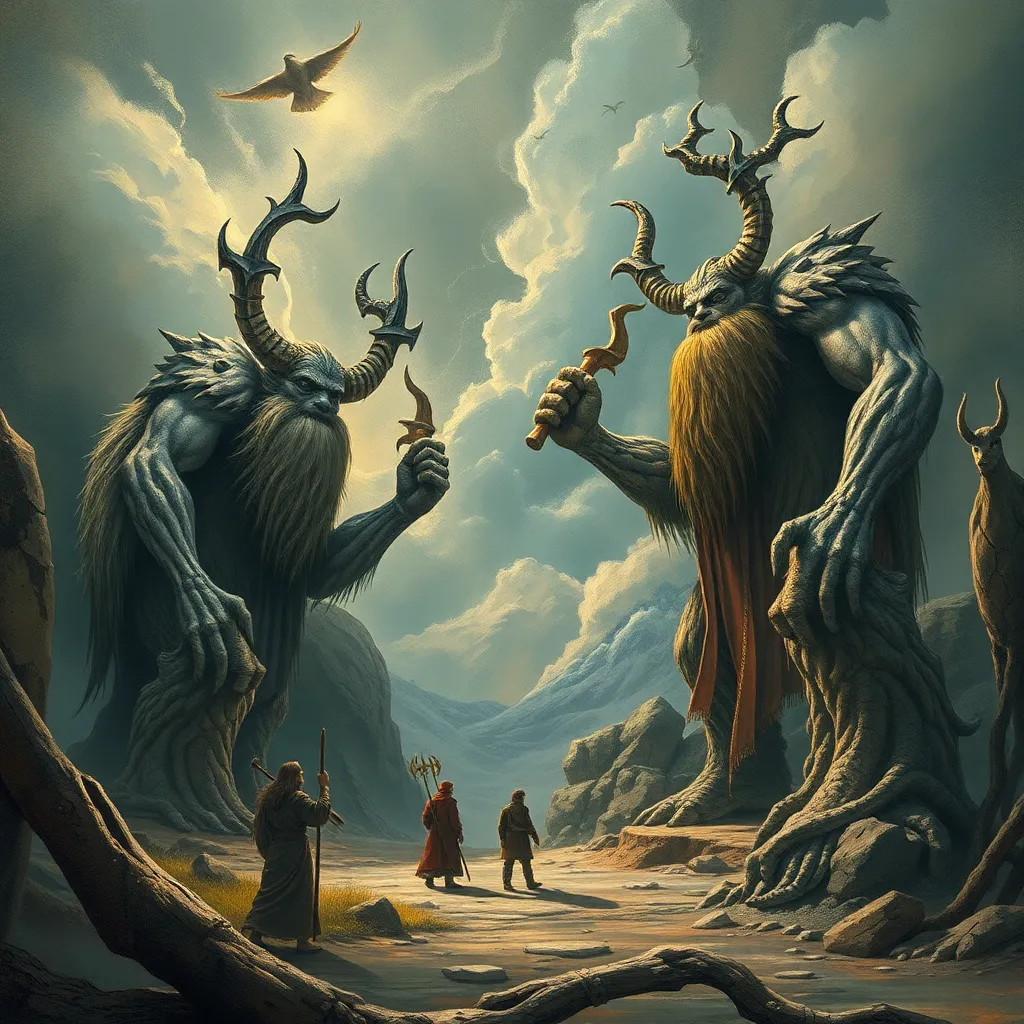The Mythological Horse of Change: Exploring the Symbolic Significance of Pegasus as a Force of Transformation and Metamorphosis
I. Introduction
Pegasus, the winged horse of Greek mythology, has captivated the imagination of countless generations. He represents not only the beauty of flight and freedom but also embodies profound themes of transformation and metamorphosis. Throughout history, the symbolism attached to Pegasus has been pivotal in cultural narratives, offering insights into human experiences and aspirations. This article will explore how Pegasus serves as a powerful emblem of transformation and change, illustrating his significance across various contexts.
II. The Origins of Pegasus in Greek Mythology
The story of Pegasus begins with a tragic tale of Medusa, one of the three Gorgon sisters. According to myth, Pegasus sprang from the blood of Medusa when she was slain by the hero Perseus. This extraordinary birth highlights the dual nature of Pegasus, emerging from an act of violence yet representing the potential for beauty and inspiration.
Pegasus is perhaps best known for his association with the hero Bellerophon, who tamed him and rode him into battle against the monstrous Chimera. This partnership symbolizes the union of human courage and divine inspiration. The flight of Pegasus not only signifies victory over chaos but also illustrates the journey from the mundane to the extraordinary.
In the greater context of Greek mythology, Pegasus embodies the ideals of heroism and the pursuit of glory. His presence in various myths emphasizes the transformative power of courage and the potential for greatness that lies within us all.
III. Pegasus as a Symbol of Inspiration and Creativity
Pegasus is closely linked to the Muses, the goddesses of inspiration in the arts and sciences. According to myth, when Pegasus struck the ground with his hoof, the spring Hippocrene emerged, a source of poetic inspiration. This connection solidifies Pegasus as a symbol of creativity, representing the transformative power that art and inspiration can have on the human experience.
- Literature: Pegasus has been featured in numerous works of literature, often symbolizing the quest for knowledge and the heights of creativity.
- The Arts: Artists and musicians have drawn upon the image of Pegasus to evoke themes of freedom, imagination, and transcendence.
The transformative power of creativity is integral to our understanding of Pegasus. Through artistic expression, individuals can explore the depths of their emotions and experiences, leading to personal metamorphosis.
IV. The Duality of Pegasus: Transformation and Destruction
While Pegasus is often seen as a force for good, his symbolism also encompasses the potential for destruction. When misused, the power associated with Pegasus can lead to hubris and downfall. Bellerophon’s tragic fate serves as a cautionary tale; after achieving great feats with Pegasus, his pride led to his eventual demise.
This duality emphasizes the balance between creation and destruction inherent in transformation. It reminds us that while change can be a source of growth, it also comes with responsibility and the potential for negative consequences.
V. Pegasus in Modern Culture
In contemporary society, Pegasus continues to capture the imagination and serves various symbolic roles. His image is prevalent in:
- Literature and Film: Pegasus appears in modern adaptations of myths, fantasy novels, and films, often representing hope and aspiration.
- Branding and Logos: Corporations utilize the image of Pegasus to convey notions of speed, power, and creativity.
The enduring legacy of Pegasus in modern culture reflects the timeless nature of his symbolism. He remains a beacon of transformation and a reminder of the potential for change in our lives.
VI. The Psychological Interpretation of Pegasus
From a psychological perspective, Pegasus can be seen as an archetypal representation of change and personal growth. In Jungian psychology, Pegasus may symbolize the journey of self-discovery, where individuals confront their inner conflicts and emerge transformed.
- Self-Discovery: The flight of Pegasus can represent the exploration of one’s inner self, leading to personal revelations.
- Metamorphosis: Just as Pegasus transcended his origins, individuals too can undergo profound transformations in their lives.
Pegasus serves as a powerful figure in dreams, often symbolizing the aspirations and desires for freedom and transformation that reside within us.
VII. Comparative Mythology: Pegasus and Other Transformational Symbols
When examining Pegasus within the broader scope of mythology, it becomes apparent that many cultures feature symbols of transformation. For instance, unicorns symbolize purity and grace, while dragons often represent chaos and the potential for personal power.
- Cross-Cultural Interpretations: Many cultures interpret transformation in similar ways, highlighting the universal human experience of change.
- Thematic Resonance: The themes of metamorphosis and personal evolution are prevalent across various mythologies, illustrating a shared understanding of the journey of life.
Pegasus, alongside these other mythical creatures, embodies the archetypal journey of transformation that resonates with people worldwide.
VIII. Conclusion
Pegasus stands as a profound symbol of transformation, creativity, and the duality of existence. His legacy in mythology and modern culture illustrates the significant role of change in our lives, both personally and collectively. As we navigate our own paths of growth and evolution, the image of Pegasus inspires us to embrace transformation and harness the potential for positive change.
In understanding the symbolic significance of Pegasus, we can better appreciate the complexities of change and the importance of balancing creation with responsibility. Ultimately, we are reminded to soar high on the wings of our own aspirations, embracing the journey of transformation in our lives.



